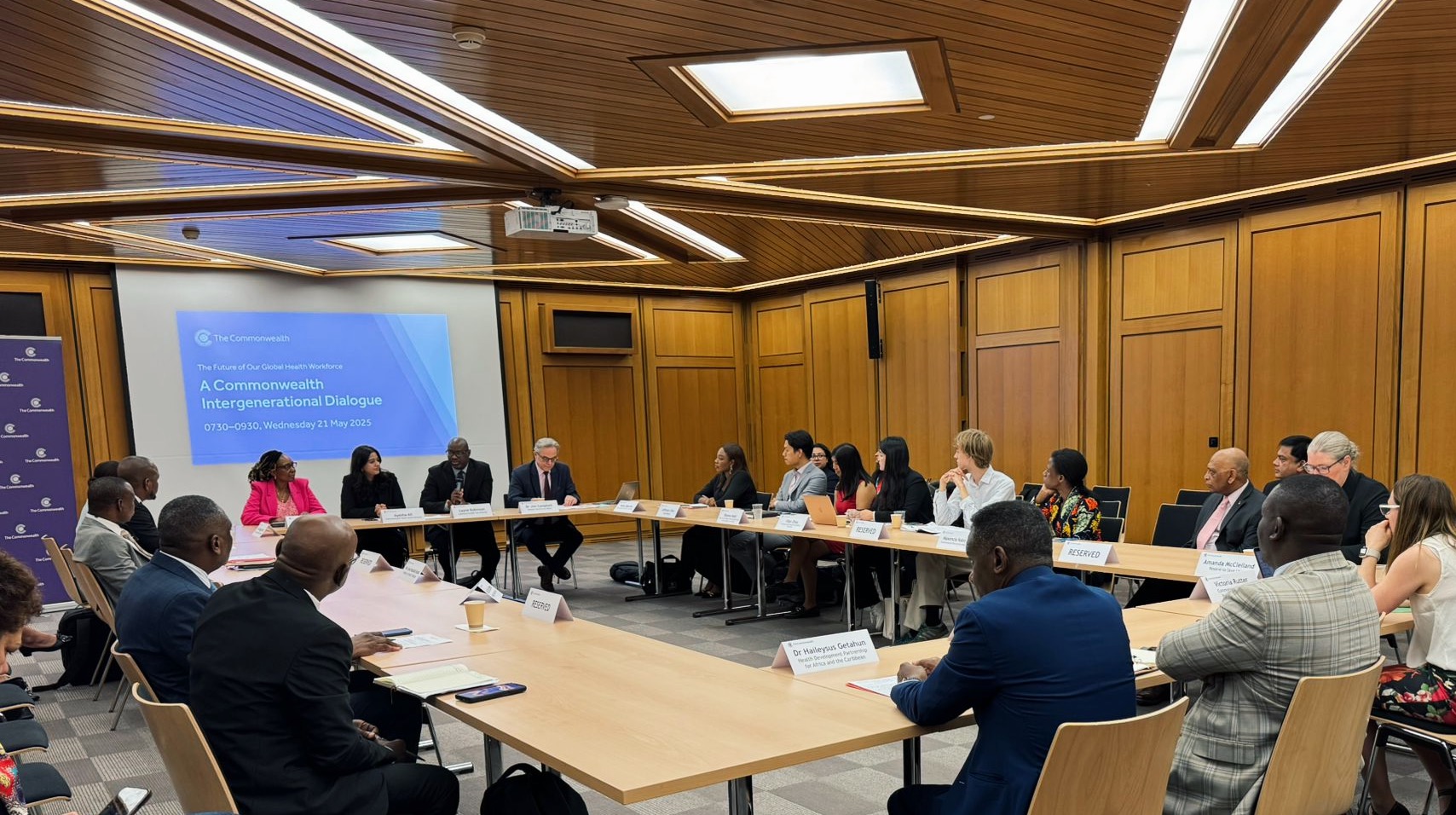Bridging Generations: Shaping the Future of the Global Health Workforce in the Commonwealth
June 17by Ayesha Ali, Maxencia Nabiryo, Bhavna Halai, Yifan Zhou
Across the globe, health systems are facing unprecedented challenges – from critical workforce shortages and increasing migration to widespread burnout and deepening health inequities. As we collectively seek sustainable solutions, it is clear that both seasoned policymakers and emerging young professionals must be integral to these conversations. In this context, creating intentional spaces for intergenerational dialogue is not just valuable – it is essential.
The Commonwealth, home to over 1.5 billion young people, is uniquely positioned to take the lead in fostering such dialogue. With youth comprising more than 60 per cent of its total population, it is more imperative than ever that their voices are not only heard but meaningfully included – particularly in discussions surrounding the future of our healthcare systems. The WHA78 side event, “The Future of our Global Health Workforce: A Commonwealth Intergenerational Dialogue,” exemplified this commitment to collaboration. Coordinated by the Commonwealth Secretariat and the Commonwealth Youth Health Network, the event facilitated open and constructive dialogue between youth advocates, health ministers, heads of regional organisations, and senior policymakers. Together, we reflected on the realities of working in health today and explored the systemic changes needed to better protect and support the health workforce of the future.
From the vibrant discussions, young health professionals shared crucial insights into their daily realities and future aspirations. It became clear that while access to education has significantly improved – with many countries, especially in the developing world, training more health workers than they can employ – leading to widespread unemployment or underemployment. It’s distressing to see trained professionals resorting to casual labour abroad simply for survival. Despite this, the overall human resource capacity for essential health services remains notably poor, and this prompted youth to urge policymakers to increase investment in the health sector to bridge these critical gaps. A strong demand also emerged for specialised capacity building, leadership training, and fellowship opportunities to equip young professionals with skills for evolving health challenges and future leadership roles.
Migration was a prominent theme, identified as a common practice driven by the search for better practice opportunities, working conditions, and living standards. Policymakers were urged to improve in-country conditions, including better remuneration, to attract and retain talent. While acknowledging migration as an avenue for expertise sharing across Commonwealth nations, both youth and policymakers advocated for fair and equitable treatment of immigrants and bidirectional learning and mutual benefits for all countries involved. Beyond professional concerns, the youth highlighted rising mental health issues, emphasising the impact of long hours and heavy workloads, and called for robust workplace well-being support and help balancing work and social life.
Building on these insights, the dialogue catalyzed a renewed commitment to institutionalizing intergenerational collaboration within health workforce governance. A central recommendation was to embed young professionals as equal stakeholders in decision-making – particularly in the formulation of workforce policies. Participants stressed the need for formal youth representation in national and regional policy processes, as well as mechanisms that ensure their input meaningfully shapes outcomes. Structural misalignment between education systems and workforce demands was highlighted as a major barrier, prompting calls for integrated planning between ministries of health and education to ensure that training pathways are complemented by mentorship and viable career options. Ethical recruitment practices also took center stage, with renewed emphasis on upholding the Commonwealth Code of Practice for the International Recruitment of Health Workers – the first multilateral political agreement of its kind. As a unique political forum bringing together both source and destination countries, the Commonwealth was recognized as an ideal space to lead difficult conversations on equitable health worker mobility. The dialogue also recognized the potential of South-South partnerships to address common workforce challenges through joint innovation, resource-sharing, and peer-driven development. To ensure sustained momentum, participants advocated for dedicated intergenerational platforms to drive inclusive reform and long-term workforce resilience.
This convening reaffirmed a powerful truth: young people are not only the leaders of tomorrow – we are presently driving change today. If we are truly committed to building resilient and equitable health systems, we must begin by listening to one another – across generations, across nations, and across sectors.




